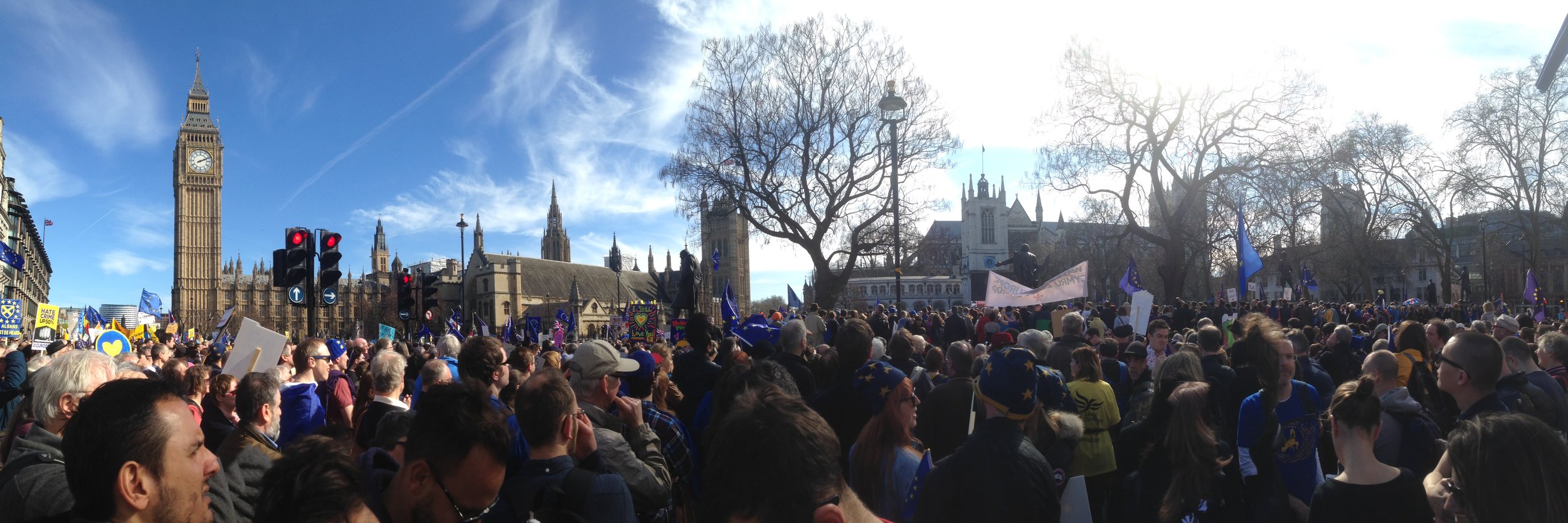The Fall of the Red Wall by Steve Rayson shows the role that narrative played in Labour’s defeat
When the votes were counted after last year’s general election, and the Tories had won 41 historic Labour seats in the North and Midlands, it became clear that a realignment in politics had happened.
Some of these seats had returned Labour MPs for over 100 years and were now returning Tory MPs despite being blighted by deindustrialization under Margaret Thatcher and austerity under David Cameron. Now that the dust has settled, we can begin to ask: why were ex-coal miners and factory workers turning their backs on Labour and voting Conservative?
This is the subject of a new book by Steve Rayson that is published today. The Fall of the Red Wall: 'The Labour Party no longer represents people like us' doesn’t seek simple answers to the complex question of how politics appeared to change so much in such a short time. It doesn’t reach for the obvious answers of “Brexit” and “Jeremy Corbyn”, but locates these in a wider story of social and political changes that were all brought to a head in December 2019.
The role of narrative
Rayson has conducted a lot of detailed research and thoroughly explains the causes of the fall of the Red Wall. He draws on a range of sources, from academic research to statements made by MPs, to focus groups, to polling, to articles by journalists. The book is certainly comprehensive. Rayson makes a lot of good points about what happened during the last election, but to save time I’m going to focus on the element that interested me the most: the role that narrative played in the fall of the Red Wall.
In Rayson’s words: “In traditional Labour constituencies across the Midlands and the North, a ‘never Tory’ generation put aside historic narratives of being Labour towns and Labour people and voted for the Conservatives.” He details how the dominant narrative of “Labour towns and Labour people” was defeated by a challenger narrative of “the Labour Party no longer represents people like us”. Again, this wasn’t caused by Brexit and Corbyn, although both were factors.
For many decades the “Labour towns and Labour people” narrative had been weakening until it finally broke in the last general election. Many Red Wall voters’ sympathies had been with the Tories for some time, but they kept voting Labour because of the “Labour towns and Labour people” narrative. It required a certain number of people to publicly voice their support for the Conservatives for the taboo of voting Tory to be broken. New stories about the Tories surging in the polls in former Red Wall seats finally caused the “Labour towns and Labour people” narrative to collapse and voters’ preferences for the Tories to be revealed.
A long decline
The decline of the “Labour towns and Labour people” narrative can be traced back to the 1980s and the decline of the trade unions that maintained this narrative. It was weakened by New Labour who pursued a new coalition of voters - more middle-class, more affluent, more centrist - and didn’t engage as much with Red Wall voters. New Labour thought they had no one else to vote for and, for a long time, they didn’t. This led to Red Wall voters feeling at best taken for granted or at worst looked down on by Labour’s metropolitan leadership.
This narrative was further weakened by people who were likely to have a strong preference for Labour leaving these constituencies. Younger, more liberal and more educated voters have moved to large cities where there are better job prospects. This had led to a demographic shift in Red Wall seats, making them older, less well educated and more socially conservative: i.e. much more like the typical Tory voter.
Rayson writes about how political changes also made it easier for voters to switch parties. Voters are more volatile now, Rayson writes: “party loyalty has declined over many years and we now live in an increasingly volatile political world. In the 2017 election 33% of people changed their vote from 2015. Over the four elections from 2005 to 2017 around 60% of people voted for different parties.”
Rayson also argues that more elections (EU elections, local elections, mayoral elections, referendums) make it easier for voters to experiment with switching parties before a general election. There is also the possibility of UKIP or the Brexit Party offering a half-way house for voters switching from Labour to the Tories.
What next?
The Fall of the Red Wall mainly describes what happened, which is essential reading for anyone who cares about the fate of the Labour Party. What I was most interested in is the book’s final part: what next?
Rayson states that Labour needs a new narrative, which I strongly agree with, and that the lack of a coherent narrative was a major weakness of the 2019 campaign. He also agrees with a recent Labour Together report (which he cites in his book) that Labour needs to focus on an economic message, as left-of-centre economic views and dissatisfactions with our current economic system is one thing that unites the various disparate groups that Labour needs to win the votes of to get back into power.
The Fall of the Red Wall also makes the case that this needs to be more than a message, it needs to be a narrative. The story that Labour needs to tell must run deeper than economics, it needs to take into account how voters in the Red Wall and beyond see the world, their fears and their aspirations for the future. The story that Labour needs to tell needs to unite people in a shared vision of the country a Labour government will create.
Cultural divide
There are many challenges to this. Rayson states that: “in developing a new narrative Labour has to be cognisant of a significant divide on cultural issues. Analysis by Datapraxis for the Labour Together review indicates this divergence on social and cultural issues [between Red Wall voters and 2019 Labour voters] is growing. This presents a major challenge for Labour in developing a narrative that realms the audience’s sense of identity and reflects a sense of shared values.”
Rayson is not the first writer to point out the difference in values between former and current Labour voters. The generational aspect of this divide is not discussed enough, nor is the fact that Labour needs to hang on to young voters as the party's future and their activist base.
I was also hoping for more details of what the different values are, beyond the clear differences in views on patriotism, law and order and immigration. Understanding exactly what the values difference is will be crucial for the new Labour narrative.
Moving to meet Red Wall voters where they are
It’s not enough to just to look at how Labour’s current supporters are out step with the rest of the country on the issues of patriotism, law and order and immigration. The book shows that the voters in these Red Wall seat’s economic views are far to the left of the median voter, but their social views are far to the right. This allowed the Tories to appeal to them on social grounds with a message of Brexit, toughness on crime, and patriotism.
Rayson makes a strong case about moving to meet Red Wall voters on social issues could alienate many voters because of how far to the right Red Wall voters are on social issues. This books chimes with a recent article by Lynsey Hanley who argues that: “Labour will win by changing minds – not pandering to rightwing voters” and is part of a wider body of evidence that Labour shouldn’t jump to the obvious conclusion from the loss of the 41 Red Wall seats.
Labour needs to know how to speak to Red Wall voters in a way that resonates with them. If Labour focuses simply on issues like patriotism, law and order and immigration to win back Red Wall voters they risk alienating the median voter (as well as Labour activists) as Red Wall voters are significantly to the right of the median voter on these issues.
My view on the narrative that Labour needs
The story that Labour needs to tell needs to offer more than moving the party closer to where the median voter is on the issues of patriotism, law and order, and immigration. Labour can wave the flag more, talk up the police (additional police has been Labour policy under Ed Miliband’s and Corbyn’s leadership) and bring back their “controls on immigration” mugs, but this won’t be enough to win over Red Wall voters.
I don’t think that many voters see a difference between what Miliband and Corbyn stood for in terms of patriotism, crime and controls on immigration. The difference between the two might have defined Labour’s civil war for the last five years or so, but from the outside it looks like Judean People’s Front Politics. Is Starmer seen as any different? He might be closer to the average voter (if not the Red Wall voter) on these issues, but is that a meaningful enough change?
My concern is that Labour is not appreciating the huge task ahead to winning back the votes that have been drifting away for most of my lifetime (and I’m not a young man). I don’t think that choosing Keir Starmer as Labour leader is a solution to the problems of Labour not being seen as representing Red Wall voters, despite the fact he’s from a different Labour tradition than Corbyn.
A step on the road towards reckoning with what went wrong
The publication of this book is a step on the road towards Labour reckoning with what went wrong last year. The detailed research and insights in this book highlight how the “Labour towns and Labour people” narrative crumbled. I hope this will be a wake up call to the fact that getting rid of Corbyn isn’t the answer to Labour’s problems. Labour needs a plan to win.
Understanding why the Red Wall fell and the role narrative plated in this fall is essential for understanding what Labour should do next. The Fall of the Red Wall is an essential tool for this as it outlines what the narrative that Labour needs to tell to start winning again might be like.
Labour is still a long way from having a strategy and narrative that can win. What The Fall of the Red Wall shows is that Labour needs to understand what went wrong and then start thinking about how to fix the problem.
The Fall of the Red Wall: 'The Labour Party no longer represents people like us' is out today and can be purchased from Amazon.
Labour Party picture taken by Andrew Skudder and used under creative commons.








